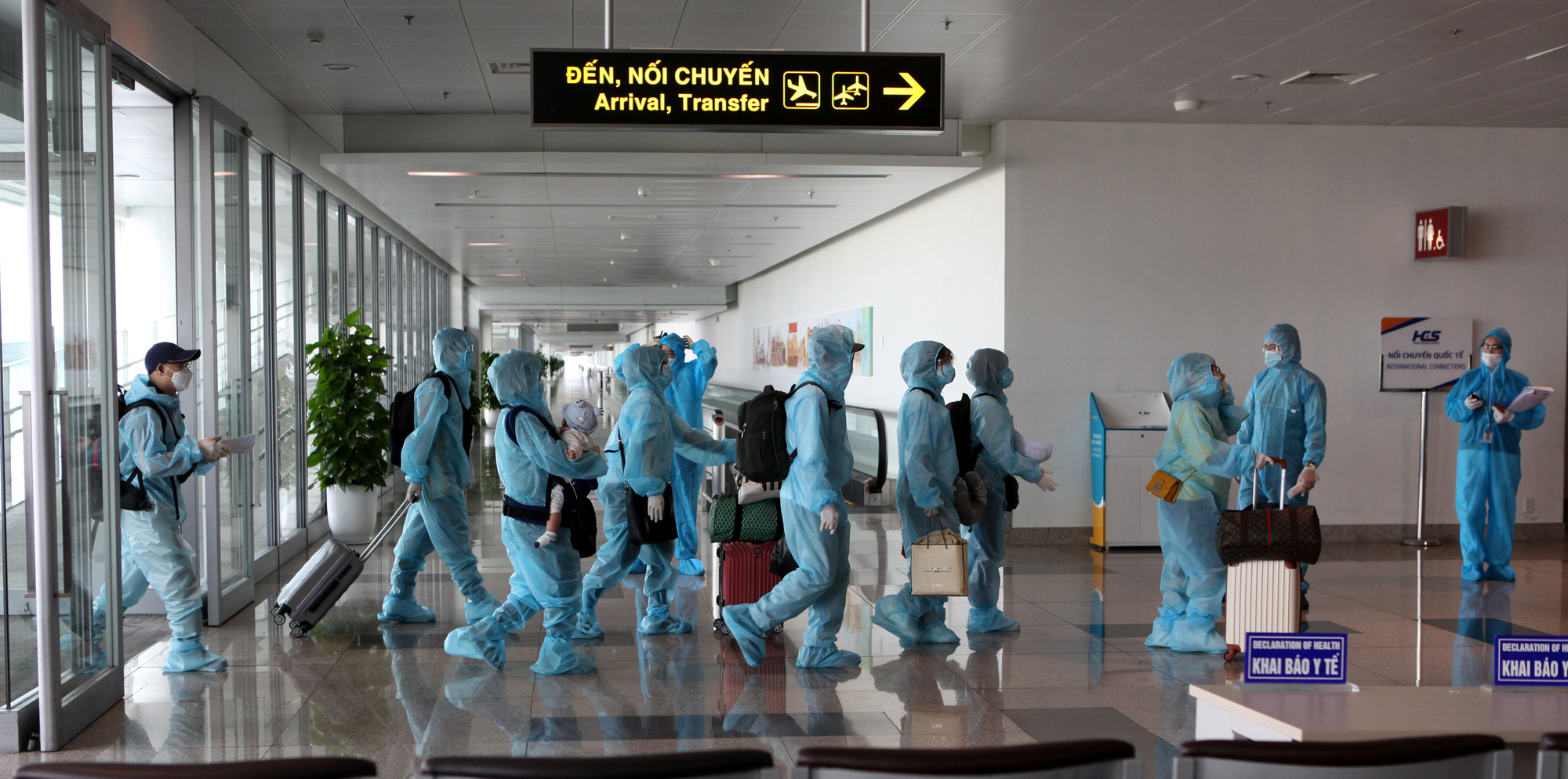The Civil Aviation Authority of Vietnam (CAAV) has proposed the Ministry of Transport consider the gradual reopening of regular international commercial routes in three stages in the remaining part of this year.
In the first phase, such international commercial flights will be opened to Vietnamese citizens with the approval of competent agencies.
Vietnamese airlines and travel companies must coordinate with local authorities and diplomatic agencies to arrange the reception and quarantine of passengers at hotels.
Air tickets, COVID-19 tests, quarantine costs at hotels, meals for 15 days, and pickup service fees will be charged in the package.
The package flights will be launched along with the repatriation services organized by the national government, whose passengers will be sent to centralized quarantine facilities instead of hotels.
The operation markets of these flights will be decided at the request of Vietnamese carriers.
The flight frequency will depend on the quarantine capacity of each locality.
Permits for these flights can be granted only after local authorities agree to the reception and quarantine plan.
In the second phase, international commercial flights will be opened to both Vietnamese and foreign citizens.
Passengers will be subject to quarantine upon their arrival but they will not be requested to submit COVID-19 test certificates.
These flights are expected to be deployed from July and operated together with the aforementioned package flights carrying stranded Vietnamese citizens home.
The first routes will include those connecting Vietnam with Japan, South Korea, and Taiwan.
The airlines of each side will operate these flights with the frequency of four flights per week per turn.
In total, 24 flights will carry 6,000-7,000 passengers to Vietnam from Japan, South Korea, and Taiwan every week.
The airlines must submit a flight plan that includes the quarantine and admission scheme approved by the locality where the airport of landing is located.
Passengers must pay the full package of airfares, cost of 15-day isolation at local hotels, pickup service from the airport to the quarantine hotel, three standard meals a day, and cost of COVID-19 tests to the airline or a designated partner.
Inbound passengers on each flight will be arranged to stay seperately at two to three different hotels.
In the third phase, regular international commercial flights will resume, without passengers being subject to quarantine upon arrival, after the acceptance of vaccination passports in Vietnam.
These flights are expected to be operated from September, depending on the progress of COVID-19 vaccination and the level of herd immunity in Vietnam.
The flights will reconnect Vietnam with the countries and territories that have recognized the effectiveness of the COVID-19 vaccines used in the Southeast Asian country, with the initial frequency of seven flights per week per turn for the airlines of each side.
Passengers with a negative result using the real-time PCR technique within three to five days before entering Vietnam and an international vaccination certificate will be exempted from centralized quarantine.
After making entry into Vietnam, passengers must declare their stays to the local authorities of their place of residence and self-quarantine for seven to 14 days under the guidance of the Ministry of Health.
Passengers who fail to submit the negative test certificate and international vaccination pass must undergo a 14-day paid quarantine period.
In response to the COVID-19 pandemic, Vietnam has closed its borders to foreign visitors since March last year and only allowed entry to certain people like international experts and diplomats who will be quarantined upon arrival.
The country has recorded 2,603 cases of COVID-19, with 2,359 recoveries and 35 virus-related deaths as of Thursday morning, according to the Ministry of Health’s data.
Like us on Facebook or follow us on Twitter to get the latest news about Vietnam!

















































